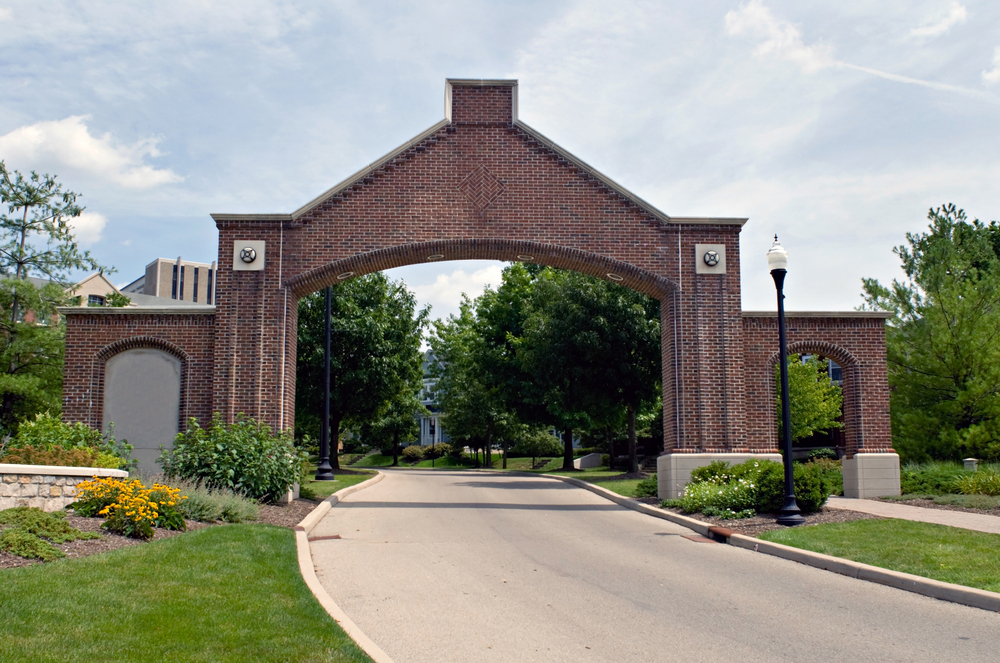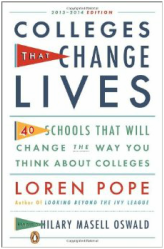| Mid-March can be a time of high anxiety for high school seniors and transfer students as they await notification from those last few colleges. Often, the most selective schools notify the latest and the end of March holds denials and waitlist notifications for many. How do you cope with having your dreams dashed by your top pick school? Denials |

It may be a little shocking. You may feel sad or angry--definitely disappointed. Try not to take it personally. The most selective schools deny numerous qualified candidates. Remember that the most selective schools are a statistical reach for all students. But, whether you were denied at a top-tier school or Big State U, they can’t accommodate all applicants. In this case it’s them not you!
Take Some Time for Yourself
Allow yourself some time to grieve your dream. You may want to talk it over with friends, family, or your school counselor. You may not want to tell anybody at first, and that’s ok too. The first few days are the worst as you process the fact that you won’t be going to the school you’ve pictured yourself at for months. Take care of yourself with exercise, friends, a little TLC, and realize that this disappointment will fade over time.
No Regrets
Don’t blame yourself and go over “would’ve, should’ve, could’ve-s.” Retracing your academic or extra-curricular path is not going to change the result, but it will make you feel worse thinking about how things might have turned out if only you had been more motivated your sophomore year. You can’t change that lazy summer or “C” in algebra, so looking toward the future will help you move on.
Appeals
Appealing an admission decision is usually strongly discouraged by universities. Appeals can be successful in rare occasions such as a violation of admission policy. You may be able to appeal an admissions decision early in the process if you have compelling new information to offer such as significantly improved test scores, grades, or a circumstance you left out of your application. However, this generally applies to less selective schools which still have seats to fill. Appeals also keep you “stuck in the dream,” and make it hard to move on and embrace your Plan B. So while it might be tempting to try an appeal, most of the time it is best to accept the decision and move on.
Keep Perspective
What you do with your education and opportunities is so much more important than the name on your diploma. There is no “golden ticket” school. A Harvard degree is not a guarantee for a successful life. This article, entitled How to Survive College Madness, has a wonderful take on how being denied can be an opportunity-in-disguise for many students. http://www.nytimes.com/…/frank-bruni-how-to-survive-the-col…
Moving On
Now that you have eliminated “Dream School U” from your list, take a look at the schools that have accepted you. Are there any you haven’t visited or need look at again? Attending the admitted student events that are available in late March and throughout April can give you a new perspective. When you attend the admitted student event you are the one being wooed by the school. It feels pretty good to know that they want you and are trying to entice you to say yes. It will be easier to picture yourself there knowing you are “in.” While you are there, spend time on campus, eat in the dining commons, talk with students, sit in on a class, or meet with a professor in your major. These are all good ways to get a deeper feel for the college.
Take Some Time for Yourself
Allow yourself some time to grieve your dream. You may want to talk it over with friends, family, or your school counselor. You may not want to tell anybody at first, and that’s ok too. The first few days are the worst as you process the fact that you won’t be going to the school you’ve pictured yourself at for months. Take care of yourself with exercise, friends, a little TLC, and realize that this disappointment will fade over time.
No Regrets
Don’t blame yourself and go over “would’ve, should’ve, could’ve-s.” Retracing your academic or extra-curricular path is not going to change the result, but it will make you feel worse thinking about how things might have turned out if only you had been more motivated your sophomore year. You can’t change that lazy summer or “C” in algebra, so looking toward the future will help you move on.
Appeals
Appealing an admission decision is usually strongly discouraged by universities. Appeals can be successful in rare occasions such as a violation of admission policy. You may be able to appeal an admissions decision early in the process if you have compelling new information to offer such as significantly improved test scores, grades, or a circumstance you left out of your application. However, this generally applies to less selective schools which still have seats to fill. Appeals also keep you “stuck in the dream,” and make it hard to move on and embrace your Plan B. So while it might be tempting to try an appeal, most of the time it is best to accept the decision and move on.
Keep Perspective
What you do with your education and opportunities is so much more important than the name on your diploma. There is no “golden ticket” school. A Harvard degree is not a guarantee for a successful life. This article, entitled How to Survive College Madness, has a wonderful take on how being denied can be an opportunity-in-disguise for many students. http://www.nytimes.com/…/frank-bruni-how-to-survive-the-col…
Moving On
Now that you have eliminated “Dream School U” from your list, take a look at the schools that have accepted you. Are there any you haven’t visited or need look at again? Attending the admitted student events that are available in late March and throughout April can give you a new perspective. When you attend the admitted student event you are the one being wooed by the school. It feels pretty good to know that they want you and are trying to entice you to say yes. It will be easier to picture yourself there knowing you are “in.” While you are there, spend time on campus, eat in the dining commons, talk with students, sit in on a class, or meet with a professor in your major. These are all good ways to get a deeper feel for the college.
Waitlisted
Being waitlisted may actually feel more challenging than getting an outright denial. It prolongs the unknown and keeps you from “going all in” on a final decision. Keep in mind that the waitlist is devised for the benefit of the college, not the student. The college has seats to fill, the waitlist ensures this. Most colleges will not start admitting off the waitlist until after May 1. It is possible you will not know the final outcome of the waitlist until June or July and remember, many students do not get admitted at all. Here are the steps to take if you are waitlisted:
1. Opt-in: most schools will have a procedure for indicating that you would like to remain on the waitlist. It could be an essay to write, a survey to fill out or a mouse click. If you want to stay on the waitlist, be sure you follow the instructions.
2. Find a viable second choice school you can be happy with. Remember back in the fall when you applied? You should have only applied to schools that you would want to attend—so go visit if necessary and pick another school.
3. Submit an enrollment deposit at “Second Choice U” by May 1. Then sign up for orientation, choose your housing and make a housing deposit. Submitting an enrollment deposit by the May 1st deadline is essential so that you will be able to go to college. (You may only deposit at one school.)
4. Start picturing yourself at “Second Choice U”—it may become your first choice! If you do end up getting the call from “First Choice U” that you have been admitted, you will have to make an enrollment deposit with them. After your spot is secured with First Choice, then you can call Second Choice and let them know that you were admitted off the waitlist at another school and you will not be enrolling there. It is important to note that you will forfeit your enrollment deposit at that point. You should, however, be able to get your housing deposit refunded. You will also have to notify the college housing department to get that initiated.
Handling disappointment and failure is part of life’s journey. However, the old saying, “When one door closes another one opens,” is the perfect metaphor. Sometimes the best journey is the one we didn’t expect.
1. Opt-in: most schools will have a procedure for indicating that you would like to remain on the waitlist. It could be an essay to write, a survey to fill out or a mouse click. If you want to stay on the waitlist, be sure you follow the instructions.
2. Find a viable second choice school you can be happy with. Remember back in the fall when you applied? You should have only applied to schools that you would want to attend—so go visit if necessary and pick another school.
3. Submit an enrollment deposit at “Second Choice U” by May 1. Then sign up for orientation, choose your housing and make a housing deposit. Submitting an enrollment deposit by the May 1st deadline is essential so that you will be able to go to college. (You may only deposit at one school.)
4. Start picturing yourself at “Second Choice U”—it may become your first choice! If you do end up getting the call from “First Choice U” that you have been admitted, you will have to make an enrollment deposit with them. After your spot is secured with First Choice, then you can call Second Choice and let them know that you were admitted off the waitlist at another school and you will not be enrolling there. It is important to note that you will forfeit your enrollment deposit at that point. You should, however, be able to get your housing deposit refunded. You will also have to notify the college housing department to get that initiated.
Handling disappointment and failure is part of life’s journey. However, the old saying, “When one door closes another one opens,” is the perfect metaphor. Sometimes the best journey is the one we didn’t expect.








 RSS Feed
RSS Feed





